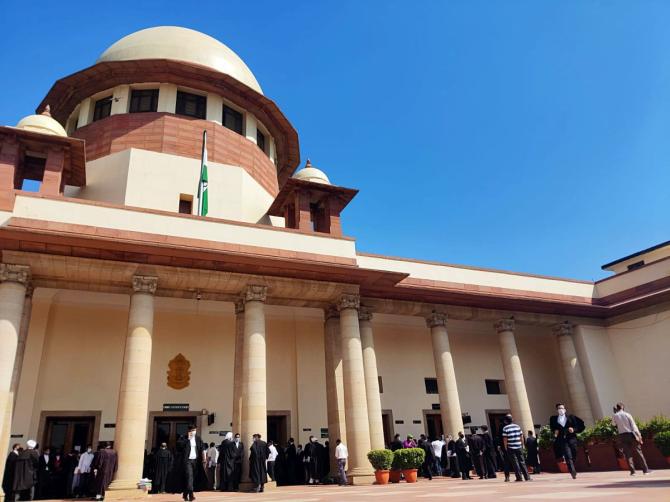Court is not an institution to sermonise society on morality and ethics and rather, it is bound by the rule of law while taking decisions, the Supreme Court has said.

The top court made this observation while ordering premature release of a woman convicted for murder of two children.
The woman had an affair with a man who used to often threaten her. So she decided to commit suicide along with her children.
She bought pesticides meant for plants and administered poison to her two children.
Thereafter, when she poured the pesticide in a tumbler to consume it herself, her niece pushed it down.
Unfortunately, the two children were declared dead on arrival in the hospital and an FIR under Section 302 of the Indian Penal Code was lodged.
The trial court convicted the woman under IPC Sections 302 (murder) and 309 (suicide) and sentenced her life imprisonment besides a fine.
The high court partly allowed her plea by acquitting her under Section 309 while upholding the conviction under Section 302 of IPC.
The woman pleaded for premature release, saying she was in prison for almost 20 years.
However, the recommendation of the state level committee was rejected by the Tamil Nadu government considering the cruel and brutal nature of the offence committed by her.
A Supreme Court bench of justices Ajay Rastogi and Ahsanuddin Amanullah said the woman never tried to murder her sons with a view to continue her illicit relationship.
"On the contrary, she had tried to commit suicide herself along with her children not with a view to continue her illicit relationship with her paramour but rather, in disappointment and frustration over the quarrel picked up by her paramour.
"This court is not an institution to sermonise society on morality and ethics and we say no further on this score, bound as we are, by the brooding presence of the rule of law," the bench said.
The apex court said the case cannot be simply bracketed as a 'cruel and brutal' offence as the woman herself was trying to end her life but was prevented by her
niece in the nick of time.
"Moreover, the recommendation of the state level committee conveyed by the additional director general of police/inspector general of prisons also notes her undisputed reflective conduct as also the long period of incarceration already undergone," it said.
The top court said there is no valid reason or justifiable ground for the State not accepting the recommendation of the state level committee for premature release of the woman.
"We are not oblivious to the crime but we are equally not oblivious to the fact that the appellant (mother) has already suffered at the cruel hands of fate. The reason
thereof is an arena this Court would avoid entering.
"The appellant is held entitled to the benefit of premature release as per GO issued by the home (prison-IV) department, under the signature of additional chief secretary to government. Accordingly, the appellant is directed to be released forthwith, if not required in any other case," the bench said.










 © 2025
© 2025